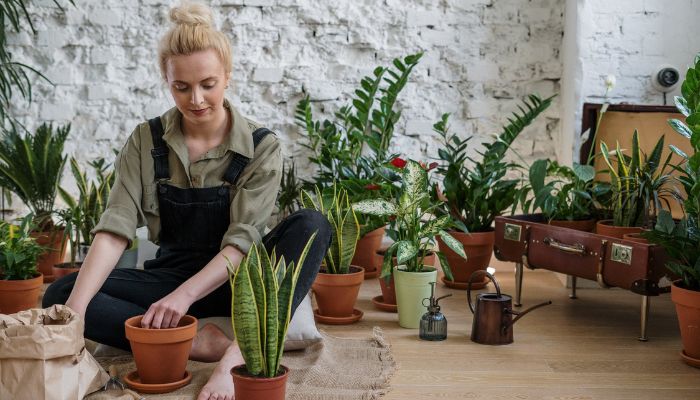Here's why community gardening should be your new year's resolution
Study shows even inexperienced gardeners can experience meaningful health advantages in their first growing season
January 08, 2023

New CU Boulder research published in the journal Lancet Planetary Health reveals that adding gardening to our lists of goals for 2023 could have a significant effect.
The first-ever randomised, controlled trial of community gardening, funded by the American Cancer Society, revealed that individuals who started gardening ate more fibre and received more exercise — two recognised strategies to lower the risk of cancer and chronic diseases. They also noticed a notable decline in their stress and anxiety levels.
Jill Litt, senior author and professor in the Department of Environmental Studies at the University of Colorado in Boulder, has devoted a significant portion of her career to locating practical, scalable, and sustainable approaches to lowering illness risk, particularly in low-income communities.
"No matter where you go, people say there's just something about gardening that makes them feel better," Medical News quoted Litt, who is also a researcher with the Barcelona Institute for Global Health, as saying.
However, reliable scientific evidence of its advantages is few. It's challenging to get support for new programmes without proof, she claimed.
People who garden typically consume more fruits and vegetables and have a healthier weight, according to some small observational studies. But it's not obvious whether gardening affects health or whether healthier people simply tend to garden.
Only three studies have examined the pastime using the randomised controlled trial, the gold standard of scientific study. Nobody has specifically examined community gardening.
291 non-gardening adults with an average age of 41 from the Denver region were gathered by Litt to fill the void. More than half were from low-income households, and more than a third were Hispanic.
The control group was instructed to wait one year before beginning gardening, and the community gardening group received half of the participants after the final spring frost.
The nonprofit Denver Urban Gardens programme and a study partner provided the gardening group with a free community garden plot, some seeds and seedlings, and an introductory gardening workshop.
Both groups had regular measurements of their bodies, completed surveys about their eating habits and mental health, and wore activity trackers.
By the fall, those in the gardening group were consuming an extra 1.4 grammes of fibre per day—or nearly 7%—on average than those in the control group.
The authors point out that fibre has a significant impact on immunological and inflammatory responses, affecting everything from our ability to digest food to the health of our gut flora to our susceptibility to diabetes and some types of cancer.
The average adult only consumes about 16 grammes of fibre daily, despite doctors' recommendations of 25 to 38 grammes.
Additionally, the gardening group increased their weekly physical activity by roughly 42 minutes. Only 25% of Americans fulfil the public health agencies' recommendation of at least 150 minutes of physical activity every week. Participants completed 28% of that need with just two to three weekly trips to the community garden.
Participants in the trial reported lower levels of stress and anxiety, with the biggest improvements in mental health issues being shown in those who entered the study with the highest levels of stress and worry.
The study also showed that even inexperienced gardeners can experience meaningful health advantages in their first growing season. Litt believes that these advantages will grow as they gain more knowledge and expertise and experience higher returns.









